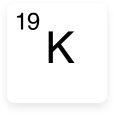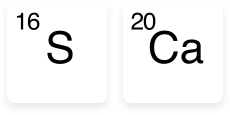
Potassium
Potassium is a major nutrient that is required in large amounts by plants required for plant growth and reproduction. We offer high quality potassium solutions, including M.O.P, S.O.P and S.O.P fines improving overall plant health and strengthening draught and temperature fluctuation resistance in plants.
M.O.P.
Features
- Potassium stimulates the growth of strong stems and gives the plant some disease resistance by promoting thickness of the outer cell walls.
- Adequate potassium can reduce moisture loss from growing plants, thereby giving some drought resistance.
- Potassium improves colour, flavour and storing quality of fruit and vegetables.
- M.O.P is the most concentrated form of granular potassium and typically the most cost effective.
- The even granule size of M.O.P allows for accurate spreading.
- M.O.P is commonly blended with SSP (S.O.P?) to supply major nutrients for pasture based systems.
Uses
M.O.P is used extensively for fertilising pastures, sugar cane, fruit trees, vegetables, and other field crops.
Typical Analysis

SOP & SOP Fines
Features
- S.O.P provides both potassium and sulphur in soluble forms.
- S.O.P contains no chloride and hence has a much lower salt index than MOP. Where soils are saline or sodic and where irrigation water may have high chloride levels SOP is the preferred form of potassium to use.
- Where seeds or transplants are placed in direct contact with fertiliser, SOP is much less likely to cause root burn of plants.
- Potassium stimulates the growth of strong stems and gives the plant some disease resistance by promoting thickness of the outer cell walls. Adequate potassium can reduce moisture loss from growing plants, thereby giving some drought resistance. Potassium improves colour, flavour and storing quality of fruit and vegetables.
Uses
Potassium sulphate (SOP) can be used where ever M.O.P is used however it is incredibly valuable in the following areas:
- Where soil or irrigation water salt levels are high and M.O.P is undesirable.
- Where chloride sensitive crops are being grown; for example, berries and vines.
- Where high chloride levels occur in irrigation water.
Typical Analysis


 About Us
About Us
 History
History
 Team
Team
 Careers
Careers








 Farm Mapping
Farm Mapping
 NPKS Reporting
NPKS Reporting
 Agronomy
Agronomy
 Soil Testing
Soil Testing
 Bin Delivery
Bin Delivery
 Spreading
Spreading
 Blending
Blending